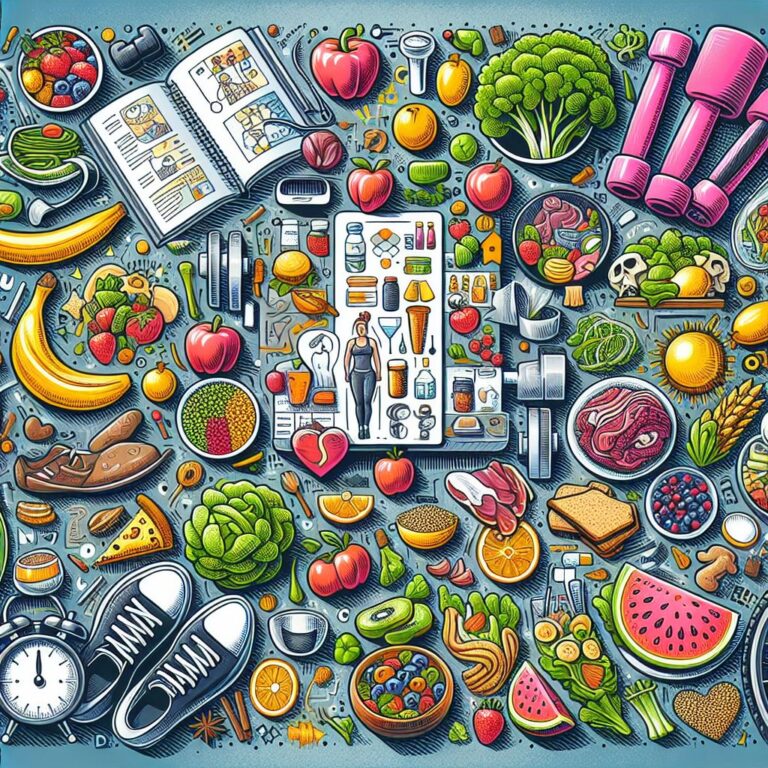Main Points
- Justin Trudeau, after almost ten years in power, has stepped down as Canada’s Prime Minister and the leader of the Liberal Party.
- Internal party disputes and a decrease in public approval influenced Trudeau’s decision.
- Trudeau’s resignation signifies a major change in Canadian politics, with possible successors already appearing.
- Trudeau’s legacy is a mix of significant accomplishments and scandals, which have affected his popularity.
- The Liberal Party must now face the challenge of rebuilding its reputation and preparing for the next elections.
News & Updates on the Resignation of Canada’s PM Trudeau
In an unexpected development, Justin Trudeau, the charismatic leader who has been the face of Canadian politics for nearly a decade, has stepped down. This decision is a turning point not just for the Liberal Party, but for the entire Canadian political scene. Let’s take a closer look at the details and implications of this major event.
Background: The Reason Behind Trudeau’s Resignation
Trudeau’s decision to resign comes amidst political unrest. The internal conflicts in the Liberal Party, along with diminishing public support, played a significant role in his choice. Many members of the party had been voicing their concerns about the party’s trajectory under Trudeau’s leadership, stating that new approaches are needed to address the new challenges.
Trudeau’s Achievements and Legacy
Throughout his time as Prime Minister, Justin Trudeau has had a range of significant accomplishments and faced various challenges. Under his leadership, Canada has adopted a progressive approach to a number of international issues, including immigration and climate change. Trudeau’s administration also made cannabis legal, a decision that made Canada a frontrunner in progressive drug policy.
- Climate Action: Trudeau was a strong supporter of carbon pricing and other environmental policies.
- Social Progress: He and his government have made significant strides in advancing LGBTQ+ rights and gender equality.
- Economic Measures: They implemented policies designed to bolster the middle class.
But Trudeau’s time in office was not without its share of controversy. He faced allegations of ethics violations and was criticized for his handling of certain political issues, which tarnished his public image. Despite these challenges, his supporters maintain that his progressive policies have had a profound effect on Canadian society. For more details, read about Trudeau’s resignation.
Factors Behind Trudeau’s Resignation
Trudeau’s decision to step down was influenced by a combination of internal and external factors. Internally, there was a growing sentiment within the Liberal Party that a change in leadership was needed to revitalize the party and its chances in future elections. Externally, Trudeau was the subject of mounting criticism from both opposition parties and a public that had grown disillusioned with his leadership.
Trudeau’s resignation can be viewed as a concession to the increasing pressures he faced. His resignation paves the way for a new leader who may be better suited to the changing priorities of both the party and the voters. For more insights into generational shifts, explore the concept of Generation Beta.
The Announcement of the Resignation
The timing and impact of Trudeau’s resignation announcement was carefully considered. Let’s take a look at how this happened and the immediate responses it provoked.
When and How the Announcement Was Made
Trudeau officially made his resignation known during a press conference at his home in Ottawa. The announcement was carefully timed to limit political damage and to ensure a seamless transition of power within the Liberal Party.
- Date: Trudeau announced his resignation on January 6, 2025.
- Venue: He made the announcement from his official residence.
- Audience: The announcement was broadcasted live, reaching viewers both in Canada and around the world.
The timing of Trudeau’s resignation at the start of a new year has not gone unnoticed. Political analysts see it as a strategic move to usher in a fresh start for the Liberal Party.
Trudeau delivered the announcement with a tone of reflection and determination. He acknowledged the challenges he faced during his tenure and expressed his appreciation for the opportunity to serve as Prime Minister.
Trudeau’s Resignation Speech: Main Takeaways
During his resignation speech, Trudeau focused on several main points. He underscored the accomplishments of his administration, recognizing both the victories and the obstacles faced throughout his term. He voiced his belief in the Liberal Party’s capacity to further these accomplishments under new leadership.
Liberal Party’s Response
The Liberal Party had a varied response to Trudeau’s resignation. Some members were upset about his departure, while others saw it as a chance for rejuvenation and expansion. The party is now faced with the challenge of choosing a new leader who can bring its members together and present an enticing vision for the future. For more details on Trudeau’s resignation, you can read the New York Times article.
Effects on Canadian Politics
The resignation of Justin Trudeau is a major turning point in Canadian politics, with both short-term and long-term impacts. It symbolizes a change in leadership dynamics and could potentially change the direction of political discussions in Canada. The Liberal Party, under Trudeau’s leadership, had established a unique path, and his departure creates an opportunity for new narratives and strategies.
Immediate and Future Consequences
Trudeau’s resignation leaves a leadership void in the Liberal Party in the near term. This presents both obstacles and opportunities. The immediate goal is to keep the party unified and maintain momentum while gearing up for the forthcoming elections. The new leader will need to quickly prove themselves as a credible and competent replacement for Trudeau.
The long-term impacts might be even more significant. Trudeau’s resignation could prompt a reassessment of the party’s policies and priorities. Depending on the new leader’s vision, the Liberal Party could experience major ideological changes. This could, in turn, affect Canada’s stance on global issues and its domestic policy agenda.
Leadership Candidates and Possible Successors
The competition to replace Trudeau is already in full swing, with a number of prominent figures coming forward as potential candidates. Each of these individuals brings a unique set of experiences and viewpoints, each with their own idea of what the future of the Liberal Party should look like.
Leading the pack of potential successors are Chrystia Freeland, the Deputy Prime Minister and Minister of Finance, who is highly respected for her diplomatic skills and economic knowledge. Another person to watch is Mark Carney, the former Governor of the Bank of Canada, who has been praised for his economic qualifications and leadership abilities.
Apart from these well-known figures, there are other possible contenders within the party. Each one has a distinct set of skills and policy priorities, making the leadership race a crucial turning point for the future course of the Liberal Party.
Next Election and the Political Climate
Trudeau’s resignation comes at a pivotal time as Canada prepares for its upcoming federal election. The Liberal Party will need to quickly unite behind a new leader who can effectively articulate the party’s platform and challenge the narratives of rival parties.
The next election will be a crucial test for the Liberal Party, as it tries to hold onto its voter base in a changing political landscape. The party will likely try to reinforce its accomplishments under Trudeau while promising innovation and renewal under a new leader.
Furthermore, the wider political scene in Canada is changing. Opposition parties are making the most of the Liberal Party’s transition, each trying to present themselves as the best alternative. This rivalry could result in a very active and unpredictable election season.
Reactions from the Public and Around the World
Trudeau’s resignation announcement has caused a variety of responses, both domestically and globally. The public’s opinion is diverse, mirroring the intricate legacy Trudeau leaves in his wake. For more insights into global political shifts, see the US Treasury hack incident report.
Trudeau’s resignation has been met with both shock and understanding around the world. As a leader known for his progressive policies and global presence, Trudeau’s departure marks the end of an era in international diplomacy.
What the Public and Media are Saying
Canadians are split on their feelings about Trudeau’s resignation. Some are grateful for his contributions to the country’s advancement, while others believe his resignation has been a long time coming due to unfulfilled promises and scandals.
There has been a lot of media attention, with experts and commentators discussing the possible effects of his resignation. The focus has been on what the Liberal Party will do next and the wider implications for Canadian politics.
Global Reactions and Impact on International Relations
World leaders have responded to Trudeau’s resignation with both admiration and expectancy. Many recognize his influence in molding Canada’s international reputation and are curious about how the incoming leadership will interact on the global stage.
On the diplomatic front, Trudeau’s stepping down could cause changes in the foreign policy priorities of Canada. The incoming leader will have to steer through intricate global relationships, while also upholding Canada’s commitments to worldwide issues like climate change and human rights.
What’s Next for the Liberal Party
With Trudeau’s departure, the Liberal Party is at a turning point. The road ahead is filled with challenges, but it also presents a chance for rejuvenation and expansion. The party’s capacity to change and grow will be key to maintaining its importance and triumph. For more details on Trudeau’s resignation, you can read the full article on The New York Times.
The Road Ahead and Changing Tack
Rebuilding public faith and trust is one of the key challenges that the Liberal Party must overcome. The party has to tackle the criticisms and controversies that have surfaced during Trudeau’s tenure and show a dedication to transparency and accountability.
For the party to widen its appeal, it might need to rethink its strategy. This could mean reassessing its policy priorities and looking at new ways of governing. By being open to change and promoting a culture of inclusivity, the Liberal Party can present itself as a progressive and dynamic player in Canadian politics.
Regaining Public Confidence and Reframing Party Perception
In the wake of Trudeau’s resignation, the Liberal Party’s main focus is on regaining public confidence and reframing the perception of the party. The party must respond to the criticisms that have been raised over time and demonstrate its commitment to transparency and accountability. This requires not only internal changes but also proactive engagement with the public to rebuild trust in its leadership. For more details on Trudeau’s resignation, visit The New York Times article.
The Liberal Party needs to concentrate on coherent and consistent messaging, underlining its dedication to the principles that resonate with Canadians. The party can show its readiness to evolve and adapt to the electorate’s changing needs by promoting an inclusive and responsive political environment.
What’s Next for Canada?
Canada is now entering a new phase without Trudeau. This is a time of great change, as the political scene will be significantly different. The Liberal Party is now faced with the task of choosing a new leader, which gives them a chance to reassess their goals and direction. The change in leadership will bring both problems and possibilities for the party and Canada.
This is a time for Canadians to look back at what we’ve accomplished as a nation and to consider what comes next. Whoever takes the helm of the Liberal Party will have a significant impact on the direction Canada takes, tackling urgent problems and building on the progress made under Trudeau. It’s also a chance for voters to have a real conversation about what we stand for as a country and what we hope to achieve.
In the end, the Liberal Party and its new leader’s success in this transition will hinge on their ability to effectively steer through the political landscape and instill confidence in their vision for the future of Canada. This transition is reminiscent of how Elon Musk announced tweaks to X’s algorithm to promote informational and entertaining content, showing the importance of adapting strategies to new challenges.
“The resignation of a leader is not the end of a journey but the beginning of a new chapter. It is an opportunity to build on past successes and address the challenges that lie ahead.”
Summing Up the Implications and Next Steps
In summary, Justin Trudeau’s resignation marks a pivotal moment in Canadian politics. The Liberal Party must now focus on uniting its members, selecting a capable new leader, and preparing for the upcoming elections. This transition period presents both challenges and opportunities, as the party seeks to redefine its direction and priorities.
Looking ahead, the Liberal Party needs to focus on regaining public confidence and showing its dedication to openness and responsibility. By accepting change and promoting a diverse political climate, the party can establish itself as a progressive and energetic power in Canadian politics.
Commonly Asked Questions
With this shift in power, it’s natural to have questions about what Trudeau’s resignation means and how it will impact Canadian politics. Here are some of the most common questions we’ve received:
What led to Justin Trudeau’s decision to step down?
Justin Trudeau’s decision to step down was influenced by a mix of internal party disputes and a drop in public approval. He saw the necessity for new leadership to tackle new obstacles and rejuvenate the image of the Liberal Party.
Trudeau’s choice to step down was a result of increasing internal party pressures and criticism from the public and opposition parties. His resignation creates an opportunity for a new leader who might be better suited to the changing priorities of the party and voters. For more insights into political shifts, check out the informational and entertaining content promoted by Elon Musk’s recent algorithm tweak.
- Trudeau was pressured to step down due to internal party disputes.
- His decision was influenced by waning public support and criticism.
- Trudeau’s goal was to create an opportunity for renewal and growth.
Who is likely to succeed Trudeau as Prime Minister?
There are several prominent figures who could potentially succeed Trudeau. Chrystia Freeland, the Deputy Prime Minister and Minister of Finance, is seen as a strong contender due to her diplomatic skills and knowledge of economics. Mark Carney, the former Governor of the Bank of Canada, is also a possible candidate, as he is known for his leadership skills and economic expertise.
What does Trudeau’s resignation mean for Canada’s political future?
Trudeau stepping down marks a change in leadership and could potentially change the course of political conversation in Canada. The Liberal Party will need to quickly find a new leader who can effectively share the party’s message and respond to the narratives of opposition parties. This time of transition brings both challenges and opportunities for the party and for the country.
What are the key hurdles the Liberal Party must overcome in the wake of this resignation?
Re-establishing public trust, ensuring party unity, and readying for impending elections are among the key hurdles the Liberal Party must overcome. The party must respond to the criticisms and controversies that arose during Trudeau’s time in office and show a dedication to openness and responsibility. On a strategic level, the party might need to shift its emphasis to appeal to a wider demographic.
What has been the global response to Trudeau stepping down?
World leaders have responded to Trudeau stepping down with a combination of admiration and expectation. Many recognize his contributions to Canada’s international reputation and are curious about how the incoming leadership will interact on the global stage. On a diplomatic level, Trudeau’s departure could cause changes in Canada’s foreign policy objectives, with the incoming leader having to manage complicated international relations.
In recent years, the rise of AI technology has transformed various industries, leading to significant advancements and innovations. As we look towards the future, experts predict that AI will continue to evolve, bringing new opportunities and challenges. To stay ahead of the curve, businesses and individuals must keep an eye on AI trends and innovations expected in 2025, which promise to revolutionize the way we live and work.
Free Press Release Daily & Weekly Roundup
Your #1 Source for Breaking | Break Out | Trending | Viral Broadcasts

















